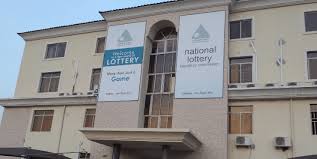Licenced lottery operators in the country have described their operational environment not only as harsh and brutish but is also putting them out of business in droves with about 60 per cent business losses and threatening the N1 trillion industry.
The chairman, Licenced Lottery Operators Forum (LLOF), Mr Chima Onwuka, expressed the frustrations of the forum in a press briefing in Abuja and lamented that the lottery industry is bedevilled by factors as: overregulation of a particular lottery business, cost template, double taxation, influx of illegal lottery, deviance from statutory guideline by the regulator and the issue of corruption.
He said lottery business is one of the most lucrative businesses on the planet earth. Apart from being lucrative, it is also a major source for wealth re-distribution and an alternative to un-regulated ‘wonder bank’ or Ponzi scheme.
Onwuka decried the multi-level licence fees in the country saying its hurting operators. He said: “To obtain lottery licence in Nigeria, you are expected to pay the National Lottery Regulatory Commission (NLRC) the sum of N150 million for licence, Lagos State government collect N200 million for five years, Ogun State collects N40 million, Oyo State N60 million, Anambra State N20 million and this is besides the various permit fees imposed on operators including VAT, grand rent, developmental fees, Lottery special tax, some state collects up to N2, 000,000.00 yearly and N15,000 monthly. This is applicable to both Lottery and sport betting.”
Besides double taxation, he said national lottery has gone to sleep with activities of many illegal lottery operators thereby choking the licenced lottery operators with their illegalities.
Onwuka argued that there was need to amend the Lottery Act to distinguish between jackpot and fixed odds, adding that it will enable the operators to decide on the one to focus on.
“There is a clear distinction in the laws that govern the game, what we have now is the law on jackpot, nobody is talking about fixed odds. If the law recognises the differences between the two, the operators would be able to decide the one they want to do.
“The necessary distinction was not made in the law when it was crafted; we want the law to be amended to address these concerns,” he lamented.
Onwuka, who described the lottery as a major source of revenue for the government, noted that the authorities must, however, invest in infrastructure to grow the business and by extension, the revenue accruable to the federation.
“Lottery is a major source of revenue for the country but the government has failed to invest in it. In other countries, only one or two operators run the lottery business but in Nigeria, there are about 26 operators out of which over 60 per cent have closed up,” he noted.
Lottery is said to worth $70 billion, is no longer news that in 2016, it was estimated that Nigerians spent an average of N154 billion on betting with 7.5 million lotteries, and 22 million sports betting players in the country.
Despite the huge potential of the business in Africa, licenced lottery operators are of the view that there is need to take a stock on challenges and problems encounter by the operator, lapses from the government and the future outlook of the industry to save it from the pending danger.
It has been established that lottery proceeds are also used as a good course for social economic development and youth empowerment programme in some parts of the world even in West African countries including Nigeria.


